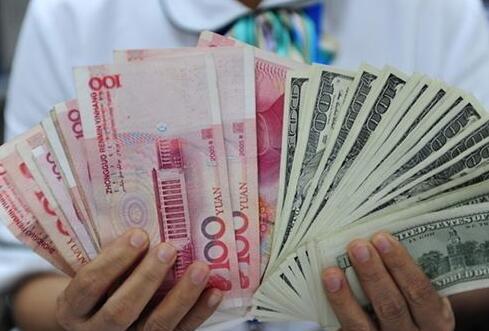WASHINGTON, Oct. 19 (Xinhua) -- China's Renminbi (RMB) exchange rate is "at an appropriate level", judging both from economic fundamentals and from market supply and demand, Yi Gang, governor of the People's Bank of China, said Saturday in Washington.
"The RMB exchange rate has remained broadly stable at an adaptive and equilibrium level based on market supply and demand and with reference to a basket of currencies," Yi said in a statement to a meeting of the International Monetary and Financial Committee (IMFC) on the sidelines of the annual meetings of the International Monetary Fund (IMF) and the World Bank.
"It has been moving in both directions to reflect market conditions," Yi said in the statement to the IMF's policy setting committee, which was posted to the IMF's website on Saturday.
"Depreciation since the beginning of August has been driven and determined by market forces and reflects shifts in market dynamics and volatilities in global foreign exchange markets amid recent global economic and financial developments and escalating trade tensions," Yi noted.
"The generally stable market reactions and balanced cross-border capital flows so far indicate that there is growing market acceptance for two-way exchange rate fluctuations," he added.
Yi encouraged the IMF to continue to conduct an "even-handed and multilaterally-consistent" assessment of exchange rates and external positions so as to provide members with constructive policy advice.
"We agree with the IMF's view that exchange rate flexibility can help mitigate external shocks. The IMF's views on exchange rate issues should be consistent over time and across countries, and additional attention should be given to the exchange rate effect of monetary policy," he said.
Yi's remarks came after the IMF reiterated in August in a report that China's real effective exchange rate in 2018 is estimated to be at the same level as warranted by fundamentals and desirable policies.
"The IMF report makes clear that there has been absolutely no currency manipulation and that China's external balance has been appropriate," said Jeffrey Sachs, a senior United Nations advisor and renowned economics professor at Columbia University.
Yi also noted that it has "become even more pressing" to follow "a multilateral approach" in addressing persistent excessive imbalances with the current escalation in trade tensions.
"We appreciate the IMF's analysis of global imbalances on a multilateral rather than bilateral basis. Global imbalances are caused by countries' macroeconomic and structural policies as well as cyclical factors," the central bank governor said, adding that increasing bilateral trade barriers is not the right solution.
"Tariff hikes will largely be offset by the trade diversion effect, with limited impact on the overall bilateral trade balance. In order to reduce imbalances, both deficit and surplus countries need to pursue well-targeted macroeconomic policies and structural adjustment," he said.
Most of the changes in bilateral trade balances over the past two decades can be explained by the combined effect of macroeconomic factors, while tariff variations played a much smaller role, according to a research by the IMF in April.
The IMF research team suggested policymakers continue to promote free and fair trade by undoing recently enacted tariffs and enhancing efforts to reduce existing barriers to trade.




 A single purchase
A single purchase









